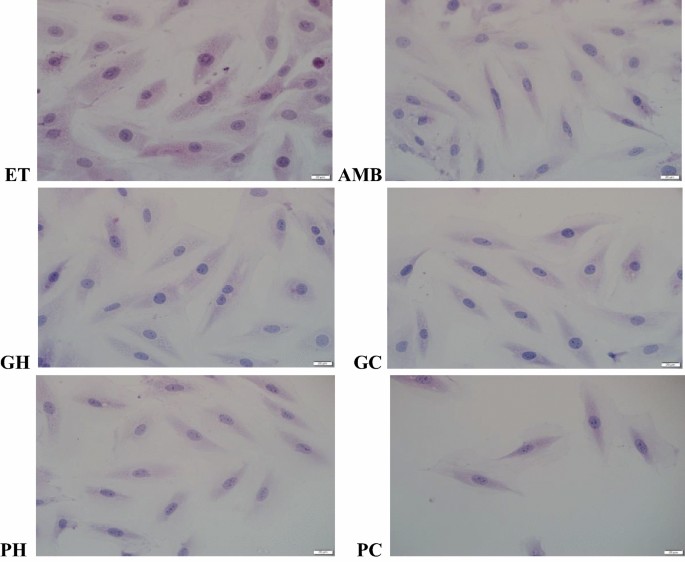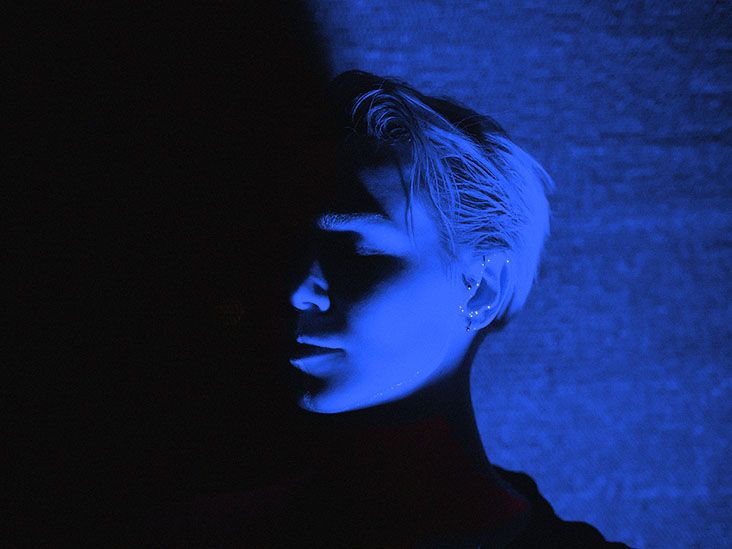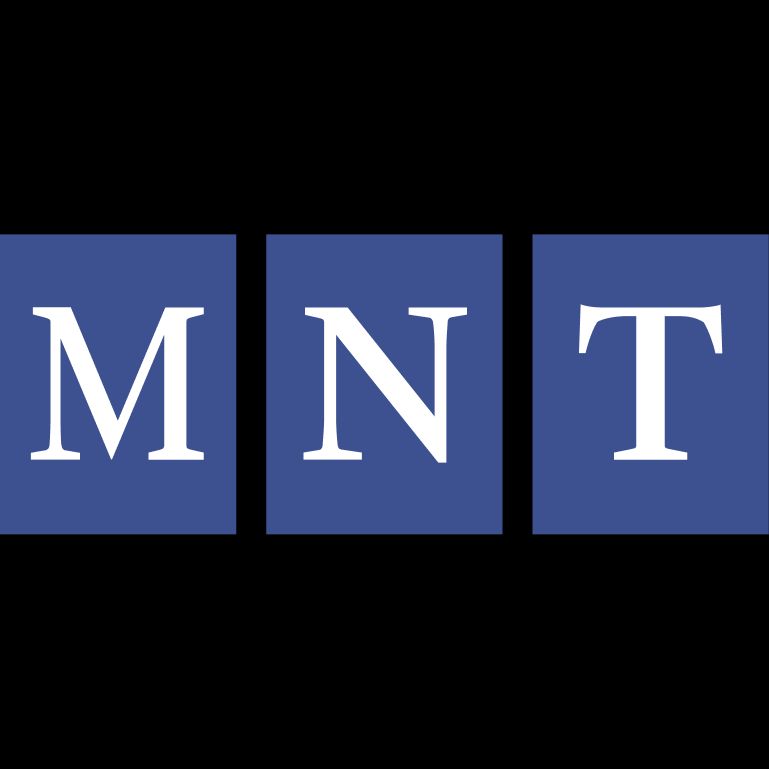madman
Super Moderator
COMPASS Pathways announces positive topline results from groundbreaking phase IIb trial of investigational COMP360 psilocybin therapy for treatment-resistant depression
The largest randomized, controlled, double-blind psilocybin therapy study ever completed shows rapid and sustained response for patients receiving a single dose of COMP360 psilocybin with psychological support
COMPASS Pathways plc (Nasdaq: CMPS) (“COMPASS”), a mental health care company dedicated to accelerating patient access to evidence-based innovation in mental health, today announced that its groundbreaking phase IIb clinical trial of COMP360 psilocybin therapy for treatment-resistant depression has achieved its primary endpoint for the highest dose, with a 25mg dose of COMP360 demonstrating a highly statistically significant and clinically relevant reduction in depressive symptom severity after three weeks, with a rapid and durable treatment response*.
In the randomized, controlled, double-blind trial, a single dose of investigational COMP360 psilocybin was given to 233 patients in conjunction with psychological support from specially trained therapists. All patients discontinued antidepressants prior to participation. The trial was powered to compare two active doses of COMP360, 25mg, and 10mg, against a comparator 1mg dose. The 25mg group vs the 1mg group showed a -6.6 difference on the MADRS* depression scale at week 3 (p<0.001). The 25mg group demonstrated statistical significance on the MADRS efficacy endpoint on the day after the COMP360 psilocybin administration (p=0.002). The 10mg vs 1mg dose did not show a statistically significant difference at week 3. The MADRS was assessed by independent raters who were remote from the trial site, and blind to intervention and study design, effectively creating a triple-blind.
At least twice the number of patients in the 25mg group showed a response and remission* at week 3 and week 12, compared with the 1mg group. The protocol-defined sustained response* up to week 12 was double, with 20.3% of patients in the 25mg group vs 10.1% in the 1mg group. Using a definition of sustained response* that is consistent with other TRD studies, the difference was more than double, with 24.1% of patients in the 25mg group vs 10.1% in the 1mg group.
COMP360 was generally well tolerated, with more than 90% of treatment-emergent adverse events (TEAEs) being mild or moderate in severity. 179 patients reported at least one TEAE; the most common TEAEs across treatment groups (>10% overall incidence) were headache, nausea, fatigue, and insomnia. There were 12 patients who reported treatment-emergent serious adverse events (TESAEs). These TESAEs included suicidal behavior, intentional self-injury, and suicidal ideation, which are regularly observed in a treatment-resistant depression patient population, and which occurred more frequently in the 25mg group than in the 10mg or 1 mg groups. Overall, 209 patients completed the study; there were five withdrawals from the 25mg group, nine from the 10mg, and 10 from the 1mg.
*This randomized, controlled, multicentre, double-blind phase IIb trial is the largest psilocybin therapy clinical trial ever conducted, with 233 patients from 10 countries in North America and Europe. 94% of the patients had no prior experience with psilocybin. The objective of the trial was to find the appropriate dose for a larger, pivotal phase III program, which COMPASS expects to begin in 2022.
Depression that isn’t helped after two or more adequate antidepressive treatments is referred to as treatment-resistant depression (TRD)1,2. More than 100 million people worldwide are affected by TRD1, 2, and as many as 30% of these attempt suicide at least once during their lifetime3, 4. The TRD population is by definition more difficult to treat and more likely to relapse than patients with major depressive disorder. In 2018, COMPASS received FDA Breakthrough Therapy designation for its COMP360 psilocybin therapy for TRD.
George Goldsmith, CEO, and Co-founder, COMPASS Pathways, said: “No one is untouched by the mental health crisis – everyone has a story. We urgently need options for people who are not helped by existing therapies. We set out to explore the safety and efficacy of COMP360 psilocybin therapy in treatment-resistant depression, through a rigorous and large-scale trial, and to find an appropriate dose to take to the next stage. I am delighted that we have succeeded in doing this. We have demonstrated our ability to execute an innovative, multicentre, multinational clinical trial program – and in the midst of a global pandemic. Our work follows the efforts and achievements of so many researchers before us, and we are grateful to all of them and for the opportunity to work with the mental health care community to transform the patient experience and patient outcomes. With our world-leading psychedelic research over the last few years, we have now created a unique and extensive data lake; this provides an unprecedented opportunity to further evaluate and optimize psilocybin therapy for patients suffering from serious mental health illnesses. With these compelling data, we will urgently progress our clinical development program and move closer to making this therapy accessible to patients in need, if approved.”
Key findings:
*COMP360 25mg vs 1mg: a difference of -6.6 points in change from baseline in MADRS total scores at week 3 (p<0.001), with a statistically significant difference seen from day 2 up to week 6
*COMP360 10mg vs 1mg: a non-statistically significant numerical treatment difference of -2.5 points at week 3 (p=0.184)
*At least double the number of MADRS responders, remitters, and sustained responders with 25mg vs 1mg; rapid response and remission from day 2 to week 3
*36.7% (29 patients) in 25mg group showed response at week 3, compared with 17.7% (14 patients) in 1mg group
*29.1% (23 patients) in 25mg group were in remission at week 3, compared with 7.6% (6 patients) in 1mg group
*24.1% (19 patients) in the 25mg group were sustained responders at week 12, compared with 10.1% (8 patients) in the 1mg group
*COMP360 was generally well tolerated, with more than 90% of treatment-emergent adverse events (TEAEs) mild or moderate in severity
*Treatment-emergent adverse event (TEAE) incidence
*83.5% (66 patients) in 25mg group
*74.7% (56 patients) in 10 mg group
*72.2% (57 patients) in 1 mg group
*Treatment-emergency serious adverse event (TESAE) incidence
*6.3% (5 patients) in 25mg group
*8.0% (6 patients) in 10 mg group
*1.3% (1 patient) in 1mg group
David J Hellerstein MD, a Principal Investigator on the trial and Professor of Clinical Psychiatry at the Columbia University Irving Medical Center, said: “Treatment-resistant depression is a common and devastating condition, affecting tens of millions of people, with few effective treatments. This is the largest modern study of a psychedelic drug, combined with psychological support, enrolling over 200 people with TRD. In this groundbreaking study, a single dose of psilocybin, given in conjunction with psychological support, generated a rapid response that lasted up to 12 weeks. Remission rates appear to be higher than seen in traditional medication studies. We now have evidence from a large well-designed trial that psilocybin may be effective for people with treatment-resistant major depressive disorder. These findings suggest that COMP360 psilocybin therapy could play a major role in psychiatric care if approved.”
Michael Pollock, CEO at the Depression and Bipolar Support Alliance (DBSA), said: “Many people suffering from severe forms of depression find that existing treatments don’t work for them. We support any attempt to investigate alternative therapies. The approach of cycling through drugs that aren’t working is inadequate for anyone who is living with a mental health condition and disheartening for the family members and healthcare professionals who care for them. The results seen from this study are an early indicator of hope for those who are desperately in need of help.”
Robin Carhart-Harris Ph.D., Director of the Psychedelics Division at the Weill Institute for Neurosciences at the University of California San Francisco, and Ralph Metzner Distinguished Professor of Neurology, Psychiatry, and Behavioral Sciences, said: “This is an important and exciting moment for the mental health care community. It builds upon more than two decades of research into the viability of psychedelic compounds to treat mental health conditions and demonstrates the potential it has in helping people living with treatment-resistant depression. It’s encouraging to see how far this field has progressed in the last 20 years and I look forward to furthering research.”
The largest randomized, controlled, double-blind psilocybin therapy study ever completed shows rapid and sustained response for patients receiving a single dose of COMP360 psilocybin with psychological support
COMPASS Pathways plc (Nasdaq: CMPS) (“COMPASS”), a mental health care company dedicated to accelerating patient access to evidence-based innovation in mental health, today announced that its groundbreaking phase IIb clinical trial of COMP360 psilocybin therapy for treatment-resistant depression has achieved its primary endpoint for the highest dose, with a 25mg dose of COMP360 demonstrating a highly statistically significant and clinically relevant reduction in depressive symptom severity after three weeks, with a rapid and durable treatment response*.
In the randomized, controlled, double-blind trial, a single dose of investigational COMP360 psilocybin was given to 233 patients in conjunction with psychological support from specially trained therapists. All patients discontinued antidepressants prior to participation. The trial was powered to compare two active doses of COMP360, 25mg, and 10mg, against a comparator 1mg dose. The 25mg group vs the 1mg group showed a -6.6 difference on the MADRS* depression scale at week 3 (p<0.001). The 25mg group demonstrated statistical significance on the MADRS efficacy endpoint on the day after the COMP360 psilocybin administration (p=0.002). The 10mg vs 1mg dose did not show a statistically significant difference at week 3. The MADRS was assessed by independent raters who were remote from the trial site, and blind to intervention and study design, effectively creating a triple-blind.
At least twice the number of patients in the 25mg group showed a response and remission* at week 3 and week 12, compared with the 1mg group. The protocol-defined sustained response* up to week 12 was double, with 20.3% of patients in the 25mg group vs 10.1% in the 1mg group. Using a definition of sustained response* that is consistent with other TRD studies, the difference was more than double, with 24.1% of patients in the 25mg group vs 10.1% in the 1mg group.
COMP360 was generally well tolerated, with more than 90% of treatment-emergent adverse events (TEAEs) being mild or moderate in severity. 179 patients reported at least one TEAE; the most common TEAEs across treatment groups (>10% overall incidence) were headache, nausea, fatigue, and insomnia. There were 12 patients who reported treatment-emergent serious adverse events (TESAEs). These TESAEs included suicidal behavior, intentional self-injury, and suicidal ideation, which are regularly observed in a treatment-resistant depression patient population, and which occurred more frequently in the 25mg group than in the 10mg or 1 mg groups. Overall, 209 patients completed the study; there were five withdrawals from the 25mg group, nine from the 10mg, and 10 from the 1mg.
*This randomized, controlled, multicentre, double-blind phase IIb trial is the largest psilocybin therapy clinical trial ever conducted, with 233 patients from 10 countries in North America and Europe. 94% of the patients had no prior experience with psilocybin. The objective of the trial was to find the appropriate dose for a larger, pivotal phase III program, which COMPASS expects to begin in 2022.
Depression that isn’t helped after two or more adequate antidepressive treatments is referred to as treatment-resistant depression (TRD)1,2. More than 100 million people worldwide are affected by TRD1, 2, and as many as 30% of these attempt suicide at least once during their lifetime3, 4. The TRD population is by definition more difficult to treat and more likely to relapse than patients with major depressive disorder. In 2018, COMPASS received FDA Breakthrough Therapy designation for its COMP360 psilocybin therapy for TRD.
George Goldsmith, CEO, and Co-founder, COMPASS Pathways, said: “No one is untouched by the mental health crisis – everyone has a story. We urgently need options for people who are not helped by existing therapies. We set out to explore the safety and efficacy of COMP360 psilocybin therapy in treatment-resistant depression, through a rigorous and large-scale trial, and to find an appropriate dose to take to the next stage. I am delighted that we have succeeded in doing this. We have demonstrated our ability to execute an innovative, multicentre, multinational clinical trial program – and in the midst of a global pandemic. Our work follows the efforts and achievements of so many researchers before us, and we are grateful to all of them and for the opportunity to work with the mental health care community to transform the patient experience and patient outcomes. With our world-leading psychedelic research over the last few years, we have now created a unique and extensive data lake; this provides an unprecedented opportunity to further evaluate and optimize psilocybin therapy for patients suffering from serious mental health illnesses. With these compelling data, we will urgently progress our clinical development program and move closer to making this therapy accessible to patients in need, if approved.”
Key findings:
*COMP360 25mg vs 1mg: a difference of -6.6 points in change from baseline in MADRS total scores at week 3 (p<0.001), with a statistically significant difference seen from day 2 up to week 6
*COMP360 10mg vs 1mg: a non-statistically significant numerical treatment difference of -2.5 points at week 3 (p=0.184)
*At least double the number of MADRS responders, remitters, and sustained responders with 25mg vs 1mg; rapid response and remission from day 2 to week 3
*36.7% (29 patients) in 25mg group showed response at week 3, compared with 17.7% (14 patients) in 1mg group
*29.1% (23 patients) in 25mg group were in remission at week 3, compared with 7.6% (6 patients) in 1mg group
*24.1% (19 patients) in the 25mg group were sustained responders at week 12, compared with 10.1% (8 patients) in the 1mg group
*COMP360 was generally well tolerated, with more than 90% of treatment-emergent adverse events (TEAEs) mild or moderate in severity
*Treatment-emergent adverse event (TEAE) incidence
*83.5% (66 patients) in 25mg group
*74.7% (56 patients) in 10 mg group
*72.2% (57 patients) in 1 mg group
*Treatment-emergency serious adverse event (TESAE) incidence
*6.3% (5 patients) in 25mg group
*8.0% (6 patients) in 10 mg group
*1.3% (1 patient) in 1mg group
David J Hellerstein MD, a Principal Investigator on the trial and Professor of Clinical Psychiatry at the Columbia University Irving Medical Center, said: “Treatment-resistant depression is a common and devastating condition, affecting tens of millions of people, with few effective treatments. This is the largest modern study of a psychedelic drug, combined with psychological support, enrolling over 200 people with TRD. In this groundbreaking study, a single dose of psilocybin, given in conjunction with psychological support, generated a rapid response that lasted up to 12 weeks. Remission rates appear to be higher than seen in traditional medication studies. We now have evidence from a large well-designed trial that psilocybin may be effective for people with treatment-resistant major depressive disorder. These findings suggest that COMP360 psilocybin therapy could play a major role in psychiatric care if approved.”
Michael Pollock, CEO at the Depression and Bipolar Support Alliance (DBSA), said: “Many people suffering from severe forms of depression find that existing treatments don’t work for them. We support any attempt to investigate alternative therapies. The approach of cycling through drugs that aren’t working is inadequate for anyone who is living with a mental health condition and disheartening for the family members and healthcare professionals who care for them. The results seen from this study are an early indicator of hope for those who are desperately in need of help.”
Robin Carhart-Harris Ph.D., Director of the Psychedelics Division at the Weill Institute for Neurosciences at the University of California San Francisco, and Ralph Metzner Distinguished Professor of Neurology, Psychiatry, and Behavioral Sciences, said: “This is an important and exciting moment for the mental health care community. It builds upon more than two decades of research into the viability of psychedelic compounds to treat mental health conditions and demonstrates the potential it has in helping people living with treatment-resistant depression. It’s encouraging to see how far this field has progressed in the last 20 years and I look forward to furthering research.”
























